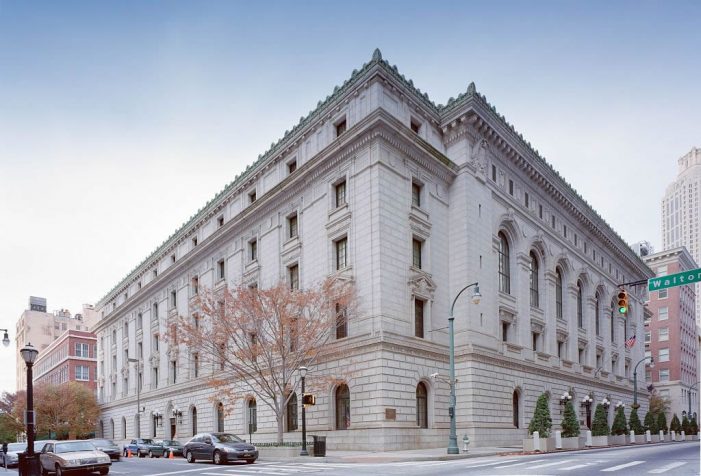By Dara Kam, The News Service of Florida
After a recent U.S. Supreme Court decision, the National Rifle Association on Wednesday urged an appellate court to find that a 2018 Florida law banning people under age 21 from purchasing rifles and other long guns violates the Second Amendment.
The Republican-controlled Legislature and then-Gov. Rick Scott rushed to include the age restriction in a sweeping school-safety bill after Nikolas Cruz, who was 19 at the time, used a semiautomatic rifle to kill 17 students and faculty members at Parkland’s Marjory Stoneman Douglas High School in February 2018. Federal law already prevented people under 21 from buying handguns.
The NRA filed a lawsuit challenging the constitutionality of the law, but Chief U.S. District Judge Mark Walker upheld the age restriction. A three-judge panel of the 11th U.S. Circuit Court of Appeals also upheld the law, but the NRA asked the full Atlanta-based appeals court to consider the case. The court last year put the appeal on hold and directed attorneys for the state and the NRA to delay filing briefs until after the Supreme Court issued a decision in a Texas gun case known as United States v. Rahimi.
The Supreme Court’s 8-1 decision in June in the Texas case backed a ban on gun possession by people under domestic-violence restraining orders and was a victory for the federal government and gun-control supporters.
But in Wednesday’s brief, lawyers for the NRA said the Rahimi ruling was narrow. They argued that the Florida law did not align with a major 2022 Supreme Court opinion in a case known as New York State Rifle & Pistol Association v. Bruen, which said gun laws must be “consistent with this nation’s historical tradition of firearm regulation.”
“This law is unconstitutional. The Second Amendment’s text protects young adults’ right to purchase a firearm, and the state has not proven that the ban is consistent with our nation’s historical tradition of firearm regulation. The young adult ban cannot stand,” John Parker Sweeney, an attorney with the Washington, D.C.-based Bradley Arant Boult Cummings LLP firm, wrote.
The NRA’s brief also tried to pick apart a March 2023 ruling by the three-judge panel of the appeals court that upheld the age restriction.
??That panel said the Florida law is consistent with traditions and pointed to age restrictions since the Reconstruction era. It also said the law allows people under 21 to possess or use guns, such as if they receive guns as gifts.
“To begin with, the act is no more restrictive than its forebearers: While the act burdens 18-to-20-year-olds’ rights to buy firearms, unlike its Reconstruction era analogues, it still leaves 18-to-20-year-olds free to acquire any type of firearm — including ‘the quintessential self-defense weapon,’ the handgun … in legal ways, as long as they don’t buy the weapons,” Judge Robin Rosenbaum wrote in an opinion joined fully by Judge Anne Conway. Judge Charles Wilson wrote a short concurring opinion.
But the NRA argued that the panel “strayed far off course at the historical stage to uphold Florida’s law” and “never addressed the complete absence of any comparable Founding Era bans—except to deem the Founding Era irrelevant.”
As an example, Wednesday’s brief noted that young adults were required to “acquire and use arms to participate in the militia” in the late 1700s.
“The ban burdens conduct that is protected by the Second Amendment’s plain text. Young adult citizens are among ‘the people’ who enjoy Second Amendment rights because they are members of the national community,” Sweeney wrote in the 69-page brief.
The “plain text” of the Second Amendment also protects young adults’ right to purchase firearms, he contended.
“The right to keep and bear arms necessarily protects the ability to acquire them, and purchase is the most common, most important, and often only available method of acquisition. Any law that hinders the exercise of Second Amendment rights, as the young adult ban does here, triggers the state’s burden to affirmatively prove a historical tradition,” the NRA brief said.
The state’s lawyers have until Aug. 30 to file a response. They previously have also relied on the Supreme Court decision in the Bruen case to try to bolster arguments for the age restriction. Examples of other historical regulations include preventing felons and certain people with mental illness from having guns.
But the NRA’s lawyers strenuously disagreed in Wednesday’s brief.
“This is a ‘straightforward’ case under Bruen,” Sweney wrote. “The undisputed absence of a ‘distinctly similar historical regulation’ from the Founding Era that criminalized a young adult’s purchase of any firearm is strong evidence that the young adult ban is unconstitutional.”
The state’s “meager evidentiary showing is too late, does not prove any comparable tradition of regulation, and otherwise cannot satisfy the state’s burden,” Sweeney argued.
“The brook is simply too broad for the state to leap: The young adult ban is not ‘consistent with the principles that underpin our regulatory tradition,’” he added.

